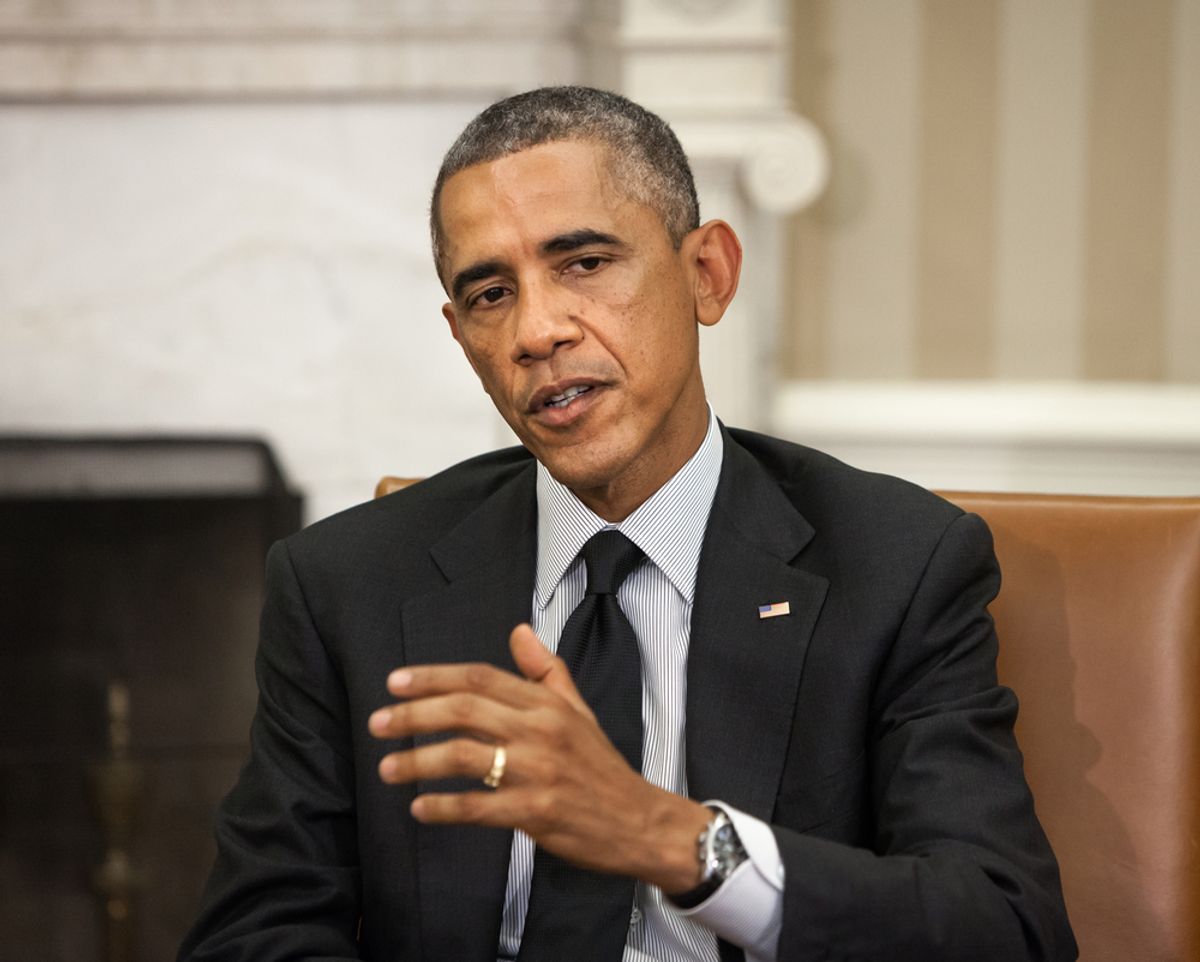While everyone else was focusing on the important business of go-nowhere Obamacare repeal bills and doomed-to-fail GOP immigration legislation, the Federal Communications Commission went and dropped one of the more significant policy recommendations of the Obama presidency. In an Op-Ed for Wired, FCC chairman Tom Wheeler officially announced that he will propose a set of rules that will allow the agency to “use its Title II authority to implement and enforce open internet protections.” Net neutrality! It’s for real this time, and Wheeler’s proposal has set the government on a collision course with one of the most powerful and widely loathed industries in America: cable internet providers.
At this moment, broadband internet is classified as an “information service” under Title I the Telecommunications Act of 1996. Wheeler wants to reclassify broadband as a “telecommunications service” – akin to a phone line – under Title II of the act, which would allow the FCC the authority to regulate broadband as a common carrier. That’s a huge policy shift, and one that the FCC has stupidly resisted for a long time. The commission’s previous attempts to impose net neutrality rules were struck down by the courts precisely because the FCC “has chosen to classify broadband providers in a manner that exempts them from treatment as common carriers.”
As for the rules themselves, Wheeler is also looking to improve upon the FCC’s previous attempt at net neutrality regulations, which were ridden with loopholes and carved out huge exemptions for mobile broadband providers. The new rules will make it illegal for ISPs to block or throttle legal online content, and forbid paid prioritization schemes that allow companies pay ISPs for preferred treatment of their content. And these rules will apply to both fixed and mobile broadband.
This is a huge victory for progressive activists who’ve been agitating for broadband reclassification. It’s also a big win for President Obama. After the courts threw out the FCC’s net neutrality order last year, Wheeler responded with a garbage proposal to allow “internet fast lanes,” which was basically what ISPs had been angling for all along. After a sustained shitstorm of outrage from online activists, Wheeler backed down. Then Obama upended the whole discussion by coming out strongly in favor of reclassification last November. Wheeler’s new proposal looks like it tracks very closely with what the president laid out.
And, of course, anything that Obama wants will be met with reflexive resistance from Republicans and conservatives everywhere. Ted Cruz stumbled face-first into the net neutrality debate a few months ago when he called the president’s plan “Obamacare for the internet. John Thune, the new chair of the Senate Commerce Committee, called Wheeler’s plan “a power grab for the federal government by the chairman of a supposedly independent agency who finally succumbed to the bully tactics of political activists and the president himself.” Republicans in Congress had actually been trying to work on a “compromise” net neutrality bill that would have further defanged the FCC while giving the appearance of providing open internet protections. By going big and endorsing reclassification, Wheeler drank the GOP’s milkshake.
But while Republicans stamp their feet and cry foul, the real action will take place in the courts. All the heavys of the broadband world – Comcast, Verizon, AT&T – are not at all happy about any move towards reclassification, and they will file suit as soon as is possible. As Gizmodo pointed out, AT&T all but declared that it would sue the FCC before Wheeler had even made his announcement. Verizon was the plaintiff in the last court challenge to net neutrality, and the company was so eager to sue that its first lawsuit was thrown out because it was filed too early.
Speaking of Verizon, it’s pretty funny how badly its net neutrality opposition has backfired. The company filed an aggressive legal challenge to get the courts to throw out a low-rent version of net neutrality, and it succeeded. But the decision from the court made clear that the FCC’s error was that it hadn’t reclassified broadband before pursuing these regulations, which effectively set the stage for Wheeler (and Obama) to back reclassification and even stronger net neutrality protections. A Congressional Research Service report from last March made it plain:
If the FCC were to use its established discretion to reclassify broadband Internet access services as telecommunications services, and the agency’s reasons for reclassifying the services were reasonable, it appears that the agency then likely could reinstate both the anti-blocking and anti-discrimination rules, consistent with the principles set out in Verizon.
Not surprisingly, the broadband industry is pissed off at Verizon.
Whatever happens, this will be a big test of the broadband industry’s substantial clout in DC. All the big ISPs spend millions of dollars annually on lobbying and have proven to be wildly successful in procuring favorable legislative outcomes. But they’re also widely reviled for their horrible customer service and poor quality of service relative to the prices they charge. No one is going to turn themselves into a villain by lining up against Comcast, and there’s ample opportunity to make a strong case that American broadband industry is in dire need of regulation and reform.

Shares